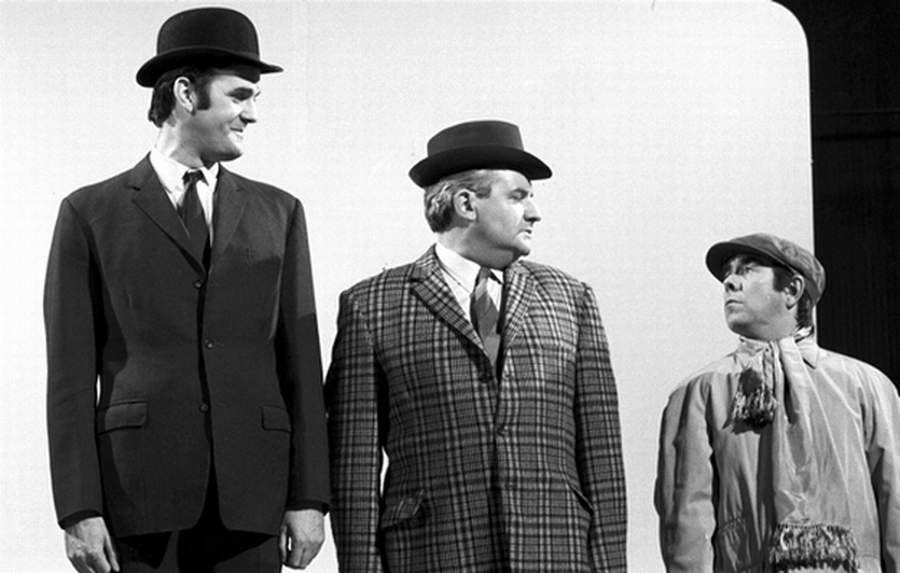Presentation and Correct
Presentation matter in politics, sometimes more than we'd like. But it's not everything.
Last edition (sorry I know there’s been a bit of a gap) I talked about the internal Labour briefing focusing on flag-waving patriotism. But the report also focused on presentation - and in particular personal presentation.
(I’m going to use ‘suit’ throughout this as the report was focused on Starmer. Women can wear suits too of course (though I can’t - they make me look boxy and like Ann Widdecombe) but we have more options. The ‘suit’ in this argument is just being smartly dressed)
In many ways, this seems like deeply redundant advice (to the point where I’d be quite shocked to have paid someone for it). Keir Starmer is the kind of man who you picture in a suit, even if he isn’t wearing one (I can’t picture him in anything else, though I am sure he has been seen in leisurewear on occasion). In many ways he is the opposite of Jeremy Corbyn in this, in that even when Corbyn did a lot of work to smarten up his image, there were just too many shots and too much memory for anyone to think him comfortable in them. He projected an image of scruffy even when he wasn’t. In many ways that was part of the authenticity that his supporters saw in him.
It may be, that the report itself was written to be leaked. That what was being signalled was not so much advice that Stamer needed but a way of saying that Starmer wasn’t like the last guy and getting journalists to repeat that message. That’s fine. I mean it’s clunky and a bit old hat as a tactic, but probably worked to an extent.
In the reaction to this advice, there was quite a lot of disingenuousness from those who simply don’t like Starmer. Pretty much anything he does or says will encounter this reaction and it isn’t really worth bothering about. Some of it too went far too far the other way. That isn’t worth bothering about either.
But there is an ongoing misperception that comes from some parts of the left about what being asked to put a suit on means. A frequent refrain is that this is anti-working class. That the wearing and expectation of wearing suits is part of the ongoing takeover of Labour politics by the middle class.
This is wrong to me on so many levels. Not least because in my 40+ years of hanging around Labour politics, it has *always* been the working class candidates who would wear suits as a matter of course. Middle class candidates, more often than not, were the ones who the agent would have to have a quiet word with telling them to scrub up before hitting the doorsteps. Some even listened.
On the face of it, it really shouldn’t matter what clothes you wear in politics. What should matter is your ideas, ideals, values and politics.
But life isn’t like that. I’m sorry, as a not particularly attractive woman, I wish it appearances didn’t matter, but they do. They are signals we send - deliberately and accidentally.
Voter perception matters. Voters thinking we respect them matters. Voters understanding that we are taking the most basic steps to signify that respect matters. It’s not anti-working class. It’s respecting the expectations of the working class voters.
If Labour is going to be able to persuade voters that we should be in charge, we need to meet them where they are. Quite often, in policy terms, we are doing that. But we are often really bad at doing so on political terms. Or on understanding that there is a difference.
Frankly, political terms matter much more when electioneering than policies. No one reads manifestos, but they do remember good slogans.
Policies are important for government, but other than a few flagship signals, they don’t mean much in opposition. The work needs to be done to prepare for government - absolutely. But to get there you need good politics, and Labour have long since lost the art of that.
What I’ve been up to
I’ve written a play. Not this week obviously! It’s been a passion project for around a year now. But I am really proud of it and at the stage trying to raise funding to stage it, which I will be doing this summer. So if you fancy not buying me a coffee so much as helping me achieve a long term ambition please consider giving what you can.
What I like most about this play is it shows the complexities and insecurities of middle aged love. Is there a reason musicians only sing about teenagers? Can later love ever recapture the feelings we had the first time? Is there really… no cure for love.
This week you can find me discussing the New Labour years - their long term impact, successes and failures with author of a new book on just that Patrick Diamond and Professor Tim Bale on the Mile End Institute podcast.
I am also on this week’s edition of Midatlantic, discussing the minimum wage and the budget.
I was also incredibly flattered to be asked to record an episode of Drunk Women Solving Crime which will be out next month.
Reading List
I really recommend reading Patrick Diamond’s book on New Labour The British Labour Party in Power and Opposition 1979 - 2019. While Patrick and I differed over the years about New Labour, as I said on the podcast, I think we have met in the middle. His analysis is honest and interesting and well worth reading for anyone interested in Labour history - from any part of the party.



Boxy!